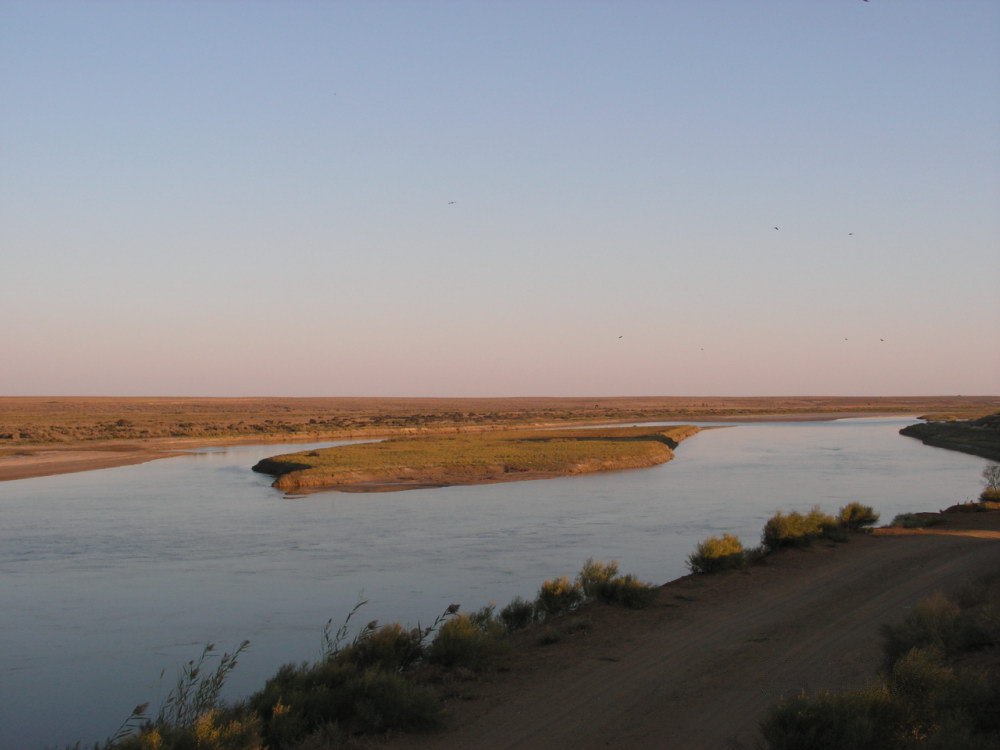The Syrdarja River, the life giving water to be saved in Central Asia
The region's main river flows through Kyrgyzstan, Tajikistan, Uzbekistan and Kazakhstan and finally empties into the languishing Aral Sea. Its flow is steadily decreasing due to climate change but also due to intensive exploitation for agricultural purposes, aggravated by competition between individual countries. But according to experts, with bottom-up initiatives it would still be possible to snatch it from its decline.
Astana (AsiaNews) - Central Asia's ecosystem is largely dependent on the region's main river, the Syrdarja, which flows into the languishing Aral Sea. The director of the EcoMind Centre for Ecological Decisions, Arman Utenov, believes that despite everything the system can be saved if the river is freed of all unnecessary hydrotechnical structures, which he likens to thrombi in the veins of a living organism. In an interview with Azattyk, he explains why it is urgent to save the water resources of Kazakhstan and the entire region.
In fact, the Syrdarja river flows through four countries, Kyrgyzstan, Tajikistan, Uzbekistan and Kazakhstan, and at the end of its course it empties into the Aral Sea. On its banks live many people of popular extraction, fishermen, traders, farmers, but for some time experts have been consulting to solve the obvious problems of the most important water basin in all of Central Asia.
The level of the northern part of the Aral depends on its waters, and in recent years the flow has steadily decreased. Utenov explains that ‘at present, the Syrdarja is unable to fulfil its natural functions’, being blocked by bridges and various types of equipment that serve the agricultural needs of various areas.
On the territory of the Kyzylorda region in Kazakhstan alone, there are 90 thousand hectares of rice cultivation, the extent of which is growing year by year. The natural flow in the territory of Kazakhstan is conditioned along the entire course of the river by a regime of intense exploitation, especially around the Šardara reservoir in the Turkestan region on the border with Uzbekistan.
Lower down is the Koksaraj hydro-regulator and the Aklak aqueduct, all the way down to the Aral Sea, constructions that are too limited in height, which do not allow the waters to flow back adequately and restore the natural regime of the river course.
Another problem that needs to be solved is the sectoral subdivision and competition between the countries that have access to the rainwater, so that even though the main basin is on the territory of Kazakhstan, coordination of the use of the resource between the various countries is necessary.
This concerns above all the use of water in agriculture, for which about 70 per cent of the water is discharged, half of which is in fact lost due to inefficient infrastructure. ‘The ecosystem must be updated,’ Utenov insists, ‘water is not just for the economy, it is for life, and its shortage can be devastating for everything. The effects intersect with climate change, interrupting the water cycle and causing the soil to lose its ability to absorb water, and destroying biodiversity.
Water is ‘a natural filter that solves all problems’, recalls the expert, and the restoration of the hydrogeological regime of the surface must be carried out by remodelling the natural processes of the area, as is already happening in other Asian regions and also in Russia, for example in Chuvashia, where they have managed to create a hundred or so artificial ponds to regulate the surrounding waters, doubling the yields of agricultural crops and even bringing back deer. The ecosystem ‘greatly influences the quality of life’, Utenov explains, and attracts the population to the proper use of natural resources.
Experts call for grassroots initiatives, in ‘basin councils’, rather than relying on the directives of governmental centres far away from the affected areas, whereas now they are limited to bureaucratic control functions. The risk is that the water conditions will worsen to the point of provoking conflicts between the people of the area and eventually between the Central Asian states themselves, leading to ‘water wars’ within a few years, such as the one that is foreseen with Afghanistan, which is digging a large canal to exploit the resources of the Amur Darya, the other great river of Central Asia, forcing Uzbekistan to pour into the waters of the Syrdarja.
25/09/2019 14:11
23/09/2019 18:17







.png)










